Latest News
Afghan Air Force Growth Pays Off In Fight Against Taliban

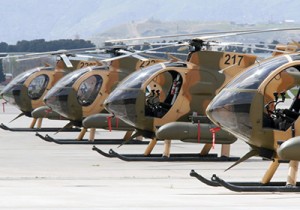 The Afghan air force has grown in capacity and proficiency as it continues to successfully target the Taliban across Afghanistan, the deputy air commander of NATO’s Resolute Support mission said.
The Afghan air force has grown in capacity and proficiency as it continues to successfully target the Taliban across Afghanistan, the deputy air commander of NATO’s Resolute Support mission said.
Air Force Brig. Gen. Lance R. Bunch, also the vice commander of the 9th Air and Space Expeditionary Task Force Afghanistan, said during a teleconference for Pentagon reporters from Resolute Support headquarters in Kabul, Afghanistan, that the Afghans are fighting their own war.
“The Afghan air force continues to add new capability, from dropping laser-guided bombs to combat air drops to integrating the UH-60 [helicopter] into their operations,” Bunch said. “This is an air force that gets better every day.”
Under the authorities of the president’s South Asia Strategy, he explained, coalition air power has expanded the targeting of Taliban forces, finances and infrastructure using new methods.
Pressuring for Reconciliation
“The entire purpose behind our air campaign is to pressure the Taliban into reconciliation and help them realize that peace talks are their best option,” Bunch said. “We kept the pressure on them through the winter and into this spring. Before the recent cease-fire began, Operation Iron Tempest, … our air campaign, had destroyed 154 Taliban targets.”
The South Asia Strategy’s new authorities have allowed for increased military pressure, which has been “amplified by the diplomatic and social pressure that is manifesting itself across the country in the form of the Afghan people calling for peace,” the general said.
Cease-Fire Still in Effect
And while Operation Iron Tempest is only one element of the military pressure the coalition has been putting on the Taliban, Bunch said he thinks it was a contributing factor to the recent cease-fire, which is still in effect. The cease-fire and more talk of peace are clear indications the South Asia Strategy is working, the general said.
“It was the combination of this military pressure, coupled with diplomatic and social pressure, that has brought us to this point, where for the first time in four decades, the people of Afghanistan were able to celebrate a peaceful end to the holy month of Ramadan,” Bunch said. “Now that the Afghan people have had a taste of that peace, their calls for a lasting peace have multiplied across the country and been heard worldwide, increasing pressure on the Taliban to reconcile.”
Airstrikes and other operations have hit the Taliban where it hurts most: in the wallet, the general said. “By all estimates, these air operations have taken over $45 million in revenue away from the Taliban in the strikes leading up to the cease-fire,” Bunch noted.
And the Afghan National Interdiction Unit’s raids, advised by the U.S. Drug Enforcement Administration, have seized or destroyed another $11 million from the Taliban’s illicit drug enterprise, he said.
No Evidence of Civilian Casualties
Bunch emphasized that no credible allegations of civilian casualties have arisen from the 154 strikes. “Our airstrikes and raids are targeted very specifically to avoid civilian casualties while putting maximum financial pressure on the insurgents,” the general said.
And unless the Taliban joins Afghanistan’s government in negotiations to extend the cease-fire, Bunch said the coalition will continue to pursue them and their illicit revenue streams at every turn.
“We are not here conducting counter-narcotics operations,” he pointed out. “The South Asia Strategy gave us extended authorities to conduct counterthreat finance operations. There is a difference that I want to emphasize: Whatever sources of revenue the Taliban draws upon, that’s where we’ll strike them.”
The Afghans leading the fight against the Taliban, Bunch emphasized. “It’s been an honor to watch them own this fight and want to own it,” he added. “Every day, they’re only getting better and more capable on the battlefield and in the air. They are fighting for the future of their nation and for the rest of the world.”
By DoD News

Latest News
Iranian official: Only vulnerable points of Afghanistan’s border will be walled and fenced
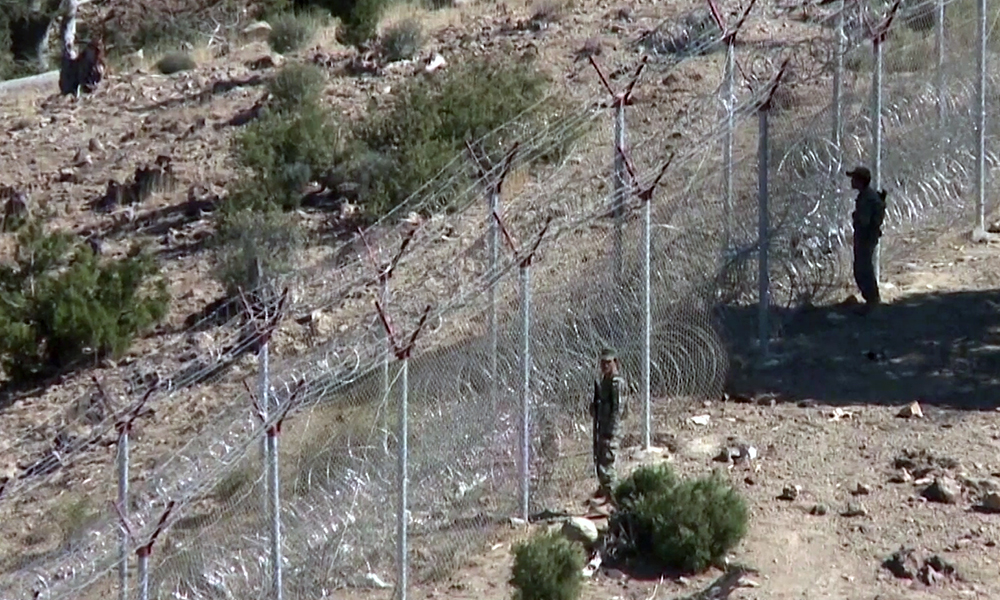
An Iranian security official has said that the entire border of Iran with Afghanistan will not be fenced, rather barriers will be created only at vulnerable points.
Iranian army has announced that the plan to create barriers at the border with a four-meter concrete wall, barbed wire and fence will be implemented within three years.
“In some northwestern and eastern borders, there are threats from the other side of the borders that we are countering,” said Qassem Rezaei, Iran’s deputy police commander.
He added that drug trafficking, human trafficking, and even terrorist infiltration may take place through these borders.
Meanwhile, the Minister of Interior of Iran Ahmad Vahidi has announced that over 1.3 million illegal foreign nationals have returned to their country in the past year.
He added that illegal citizens should leave Iran as they are not allowed to stay.
Latest News
Hanafi meets WHO regional director, stresses need for cooperation
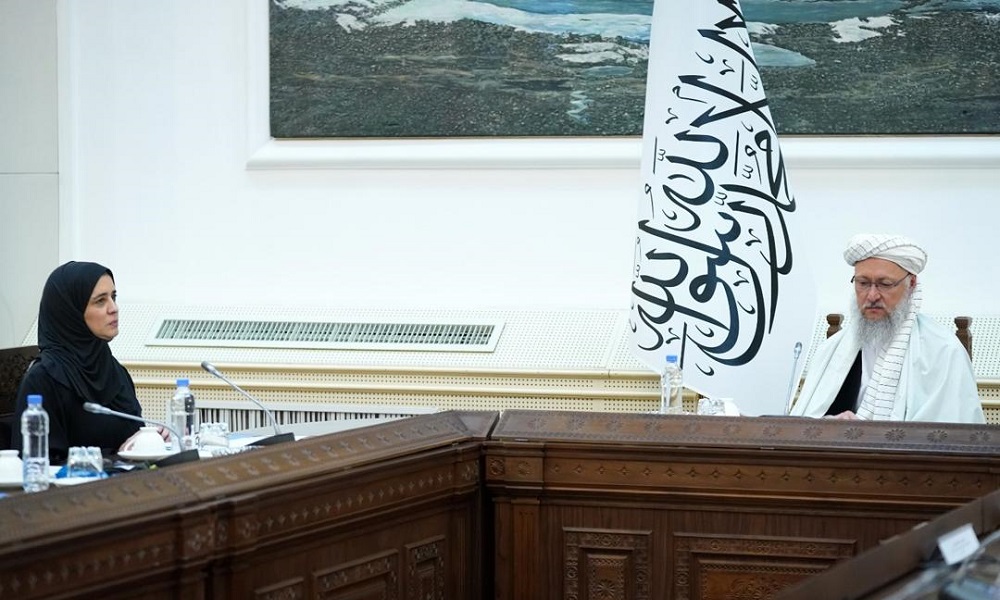
Deputy Prime Minister for Administrative Affairs Abdul Salam Hanafi on Sunday met with WHO Regional Director for the Eastern Mediterranean, Hanan Balkhy, and called for the organization’s cooperation including in the establishment of clinics in remote areas and training of specialists.
According to a statement released by his office, Hanafi pointed out that since the Islamic Emirate in Afghanistan regained power, there has been progress in various fields, including the fight against drug production and trafficking, the roundup and treatment of drug addicts, the eradication of corruption and nationwide security.
He asked the WHO to hand over Afghanistan’s seat to the representative of the Islamic Emirate and restore Afghanistan’s membership in meetings of the executive board and leadership meetings of the Mediterranean region.
Hanafi also called for the cooperation of international organizations in providing alternative livelihoods for poppy farmers and in providing assistance to flood victims.
While stressing that the eradication of polio is one of the priorities of the Islamic Emirate, Hanafi asked the WHO to activate polio diagnosis laboratories and supply vaccines, establish a cancer treatment center, prevent malnutrition among children and provide safe drinking water.
According to the statement, WHO official Balkhy said in the meeting that the health issue is non-political and one of the priorities of the organization.
She pointed to the achievements of the Islamic Emirate in various fields and expressed hope that better conditions will be provided for Afghans in the health and education sector.
Balkhy explained that WHO, together with other international organizations and the European Union, has a three-year project that includes the establishment of health centers in different provinces of Afghanistan.
She also expressed her appreciation for the efforts of the Islamic Emirate in the fight against polio and added that she will discuss the issue of providing alternative livelihoods for Afghan farmers with the WHO and other relevant organizations.
Latest News
OIC summit urges IEA to respect girls’ right to education
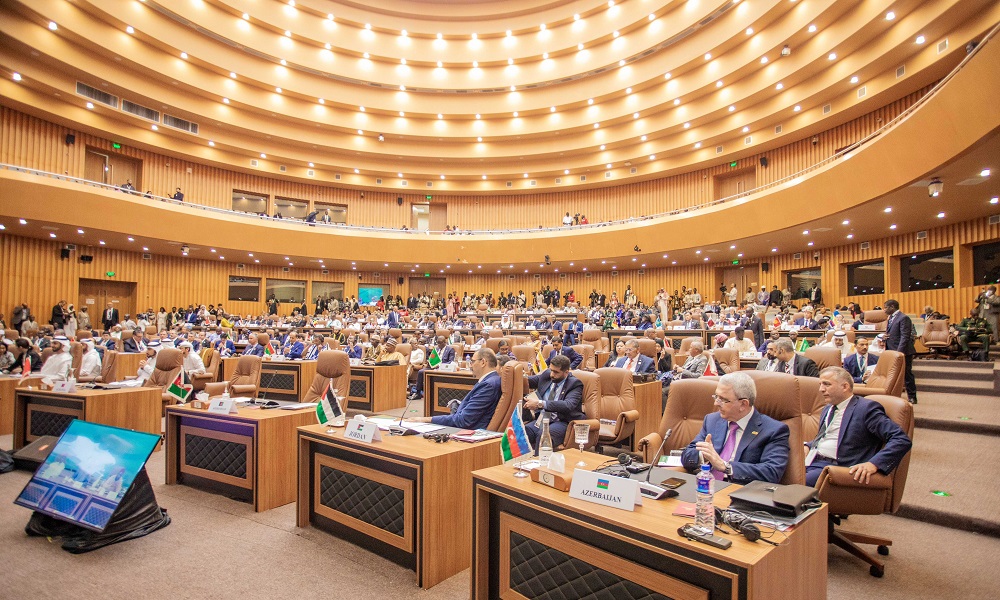
The 15th summit of the Organization of Islamic Cooperation (OIC) in Gambia on Sunday called on the Islamic Emirate of Afghanistan (IEA) to respect Afghan girls and women’s right to education and work.
In a declaration, OIC described the right to education and work as the fundamental rights of Afghan girls and women, and called for more communication with the IEA authorities on these issues.
Additionally, the participants emphasized the need for more efforts to address the challenges related to ethnic groups, drugs, terrorism, and social issues to ensure inclusive governance and sustainable peace and stability in Afghanistan.
“We also emphasize the need to make more efforts to address the challenges associated with ethnic groups, terrorism, drugs and social aspects for inclusive governance to achieve sustainable stability,” the declaration said.
Delegations from the 57 OIC member states attended the conference, organized by the Organization of Islamic Cooperation under the theme “Enhancing unity and solidarity through dialogue for sustainable development.”.
The summit was also attended by an IEA delegation.
-

 Sport5 days ago
Sport5 days agoSorkh Poshan Khafi and Khadim FC winners in their ACL matches
-
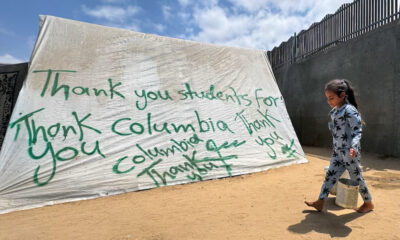
 World4 days ago
World4 days agoWhy Palestinians can count on American students but not Arab allies to protest
-
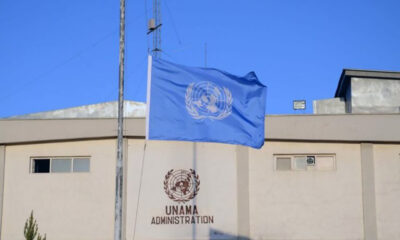
 Latest News5 days ago
Latest News5 days agoUNAMA issues latest rights report, notes ongoing challenges for women, girls and media
-

 Sport4 days ago
Sport4 days agoAbu Muslim and Attack Energy win in ACL matches
-

 Sport5 days ago
Sport5 days agoBairstow, Rossouw help Punjab beat Chennai in IPL
-

 Sport5 days ago
Sport5 days agoFour Afghans included in Refugee Olympic Team for Paris 2024
-
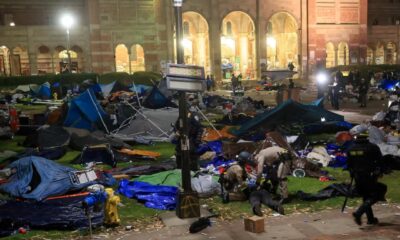
 World5 days ago
World5 days agoCalifornia police flatten pro-Palestinian camp at UCLA, arrest protesters
-

 Latest News5 days ago
Latest News5 days agoFive dead, 24 injured in traffic accident in Samangan
















